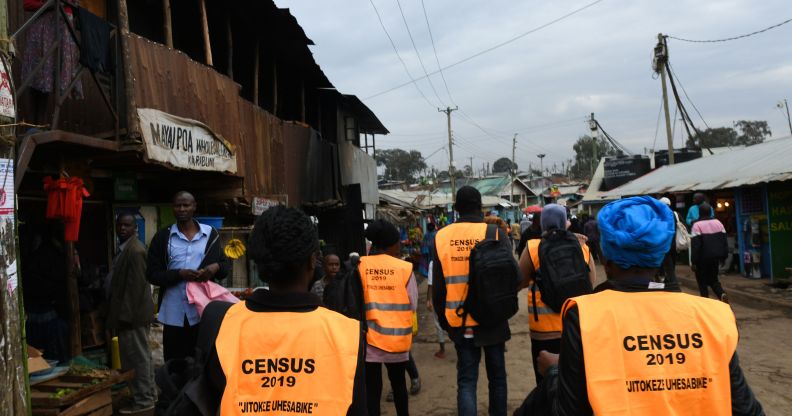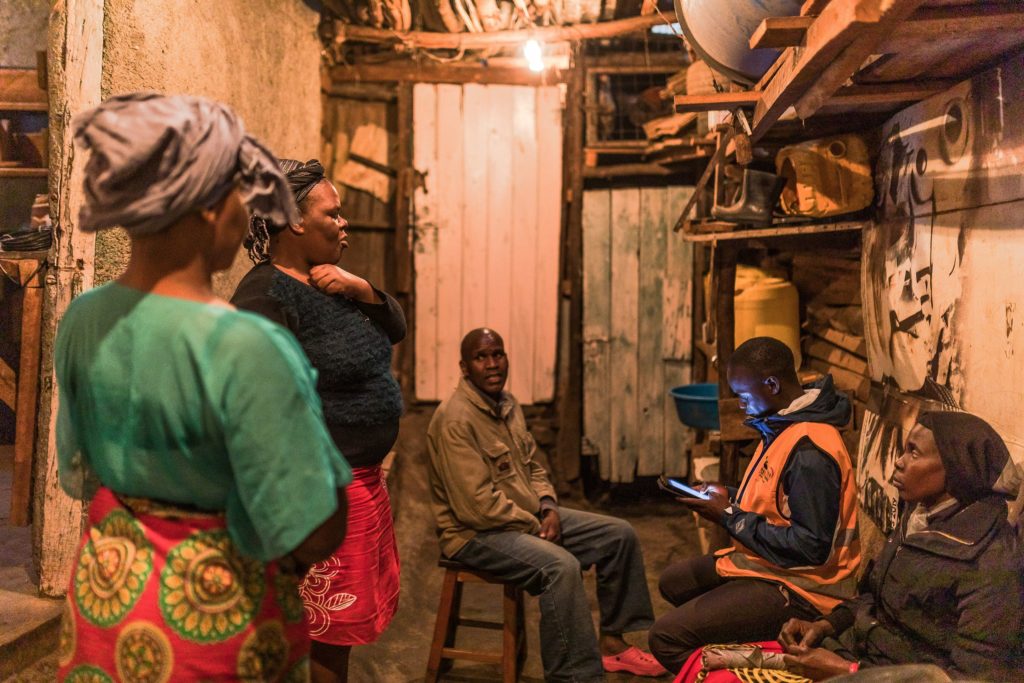Kenya recognised intersex people in its national census for the first time ever

Census workers in the streets of Nairobi, as Kenya recognises intersex population for first time (Simon Maina/AFP/Getty)
Kenya has acknowledged its intersex population for the first time ever in its national census, in what campaigners are calling a “big win” for LGBT+ rights.
It is the first African nation and one of the only countries in the world to officially count people born with hormone and sex characteristics that do not fit the male/female binary.
The United Nations estimates that up to 1.7 percent of babies are born with sex characteristics that don’t fit typical definitions of male and female, which makes them almost as common as redheads.
According to Reuters, the results released on Monday showed that 1,524 Kenyans – 0.003 percent of the population – said they were intersex.
Campaigners believe this low figure is due to widespread stigma and low awareness, as many people simply do not know that they are intersex, having never been told as a child. Experts believe there could actually be as many as 700,000 in Kenya.
Nevertheless, Isaac Mwaura, Kenya’s senator for persons with disabilities, told Reuters that the inclusion of intersex people in the country’s official census is a big step forward.
“Certainly the numbers are not what we expected in terms of big volumes, but the KNBS data confirms that every county has people who identify as intersex,” he said.

Census workers collecting data on a family in Nairobi (Brian Otieno/AFP/Getty)
“It doesn’t matter if it’s one intersex person or one million. I see it as a big, big win as it means intersex people are recognised and their rights must be safeguarded – just like all other minorities in this country.”
Across the world, intersex children are regularly given so-called ‘corrective’ or ‘normalising’ surgeries to make them conform to gendered social norms. Many of these surgeries are unnecessary and irreversible, and can cause great emotional and physical harm later in life.
The UN’s official position is that people “should be free to decide whether or not they want to undergo such procedures when they are old enough to make an informed decision for themselves”.
Greater awareness of populations is crucial in campaigning for their rights and protections, as Mwaura is now doing. Last year he introduced a bill in parliament that would allow intersex people to change their sex on their national ID cards and to include ‘intersex’ on birth and death certificates.
“We have to remember this is the first time in Kenya that we are even speaking about intersex issues, so it’s going to take time and a lot work, but at least the conversation has started,” said James Karanja, director of the Intersex Society of Kenya.

